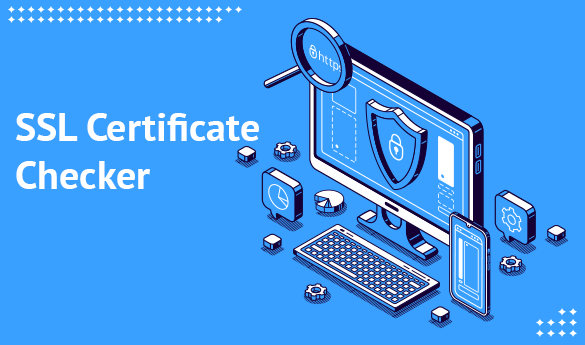
Understanding SSL Lookup: Ensuring Security in the Digital Age
Created on 17 January, 2025 • Checker Tools • 79 views • 2 minutes read
SSL Lookup is a crucial process that allows users to verify the authenticity and security of a website's SSL certificate.
What is SSL Lookup?
SSL Lookup is a crucial process that allows users to verify the authenticity and security of a website's SSL certificate. SSL, or Secure Sockets Layer, is a protocol that encrypts data transmitted between a web server and a browser, ensuring that sensitive information remains private. By performing an SSL lookup, businesses and individuals can confirm that a website is secure, which is essential for protecting user data and maintaining trust.
Why is SSL Lookup Important?
Conducting an SSL lookup is vital for several reasons. First and foremost, it helps identify whether a website has a valid SSL certificate. This validation is crucial for e-commerce sites where customers share sensitive information such as credit card details. Additionally, an SSL lookup can reveal the certificate's expiration date, ensuring that websites maintain up-to-date security measures.
How Does SSL Lookup Work?
The Process of SSL Verification
When you perform an SSL lookup, the process involves querying the Certificate Authority (CA) that issued the SSL certificate. This query retrieves essential details about the certificate, including:
- Domain Name: The website associated with the certificate.
- Issuer: The CA that issued the certificate.
- Validity Period: The start and end dates of the certificate’s validity.
- Encryption Strength: The level of encryption used to protect data.
By examining these details, users can determine if a website is trustworthy and secure.
Tools for Performing SSL Lookups
Several online tools are available for conducting SSL lookups. These tools simplify the verification process and provide comprehensive information about a website's SSL certificate. Popular options include:
- SSL Labs: Offers detailed reports on SSL configurations and vulnerabilities.
- SSL Checker: Provides quick checks on certificate validity and installation.
- WhoisXML API: Delivers in-depth information about domain ownership and SSL certificates.
Benefits of Using SSL Lookup
1. Enhancing Online Security
One of the primary benefits of performing an SSL lookup is enhanced online security. By verifying a website's SSL certificate, users can protect themselves from potential cyber threats such as phishing attacks or data breaches. This proactive approach ensures that sensitive information remains confidential.
2. Building Customer Trust
For businesses, having a valid SSL certificate is essential for building customer trust. When customers see the padlock icon in their browser’s address bar, they feel more secure sharing their personal information. An SSL lookup helps businesses maintain this trust by ensuring their certificates are valid and up-to-date.
3. Improving SEO Rankings
Search engines like Google prioritize secure websites in their rankings. Websites with valid SSL certificates are more likely to appear higher in search results. By regularly performing SSL lookups, businesses can ensure their sites remain secure and maintain their competitive edge in search engine optimization (SEO).
Conclusion: The Importance of Regular SSL Lookups
In today's digital landscape, where online security threats are ever-present, performing regular SSL lookups is essential for both individuals and businesses. By verifying the authenticity of SSL certificates, users can protect their sensitive information, build trust with customers, and improve their online visibility.Embrace the power of SSL lookup to safeguard your online presence today! Whether you are an individual concerned about your data security or a business aiming to enhance customer trust, understanding and utilizing SSL lookup will lead you toward a safer digital experience.ShareRewrite